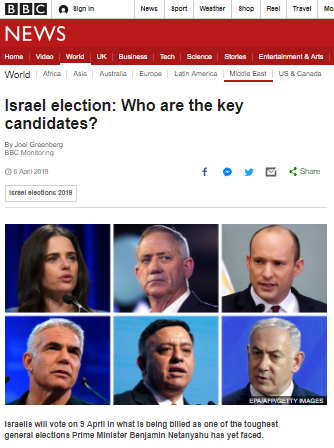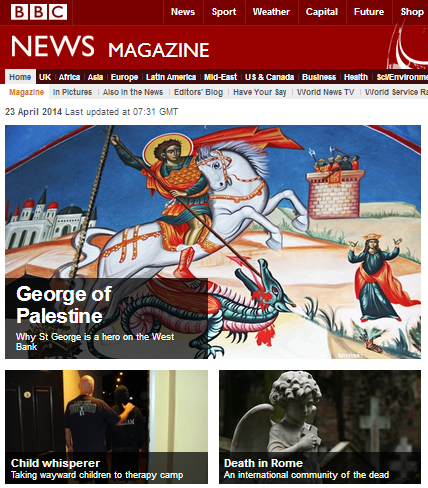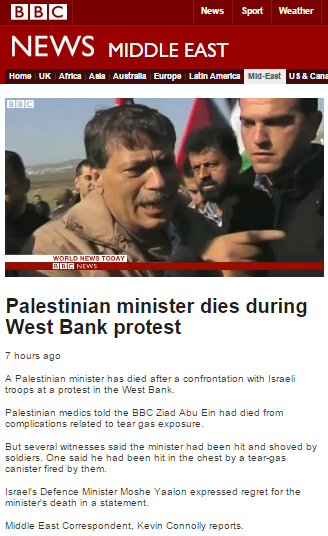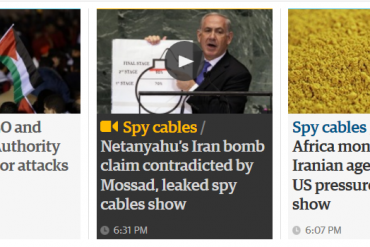An overview of the BBC News website’s coverage of the Israeli elections up until the commencement of polling on the morning of Tuesday, April 9th 2019 shows some unsurprising trends.
The following articles have appeared on the BBC News website since the election was announced in late 2018.
Israel sets date for elections 24/12/18 discussed here
Netanyahu and the allegations of corruption Tom Bateman 20/2/19 discussed here
Israel elections: Netanyahu challengers Gantz and Lapid join forces 21/2/19
Benjamin Netanyahu: Israel PM faces corruption charges 28/2/19 discussed here
Netanyahu charges: Is Israel PM in more trouble now than ever before? Yolande Knell 1/3/19 discussed here
Wonder Woman star Gal Gadot wades into Netanyahu row over Israeli Arabs 11/3/19 discussed here
Israel elections: Court bans far-right candidate Ben-Ari 18/3/19 discussed here
Israel elections: ‘Fascism’ perfume ad sparks online debate 19/3/19
Israel’s Benjamin Netanyahu: Commando turned PM first published in 2013, updated 28/3/19
Benny Gantz: The Israeli ex-military chief challenging Netanyahu 5/4/19 discussed here
Israel election: Who are the key candidates? BBC Monitoring 6/4/19
Israel PM vows to annex West Bank settlements if re-elected 7/4/19
Israel’s election: Five things to know Yolande Knell 8/4/19
How far will Israel shift to the right? Tom Bateman 8/4/19 discussed here
Israel election: PM Netanyahu seeks record fifth term 9/4/19
As has been the case in previous years, the vast majority of the contending lists were totally ignored in BBC coverage. Most of the BBC’s attention was once again focused on the right of the political map with the exception of the Blue and White Party.
The contenders considered by the BBC to be “key candidates” were Binyamin Netanyahu (Likud), Benny Gantz and Yair Lapid (Blue and White), Naftali Bennett and Ayelet Shaked (New Right), Avi Gabbay (Labour) and Moshe Feiglin (Zehut). BBC audiences only saw explanations of the platforms of the five parties represented by those seven people.
Other parties predicted to win at least as many seats as Labour and Zehut, such as United Torah Judaism, Meretz or Shas, received no BBC coverage at all. Additional parties such as Hadash-Taal, Kulanu and Raam-Balad received only superficial mentions throughout the three months of reporting.
While audiences saw extensive coverage of the legal cases involving Netanyahu, the topic of what concerns the Israeli voter was yet again completely ignored in BBC coverage.
Related Articles:
Reviewing the BBC’s record of reporting on Israeli elections




